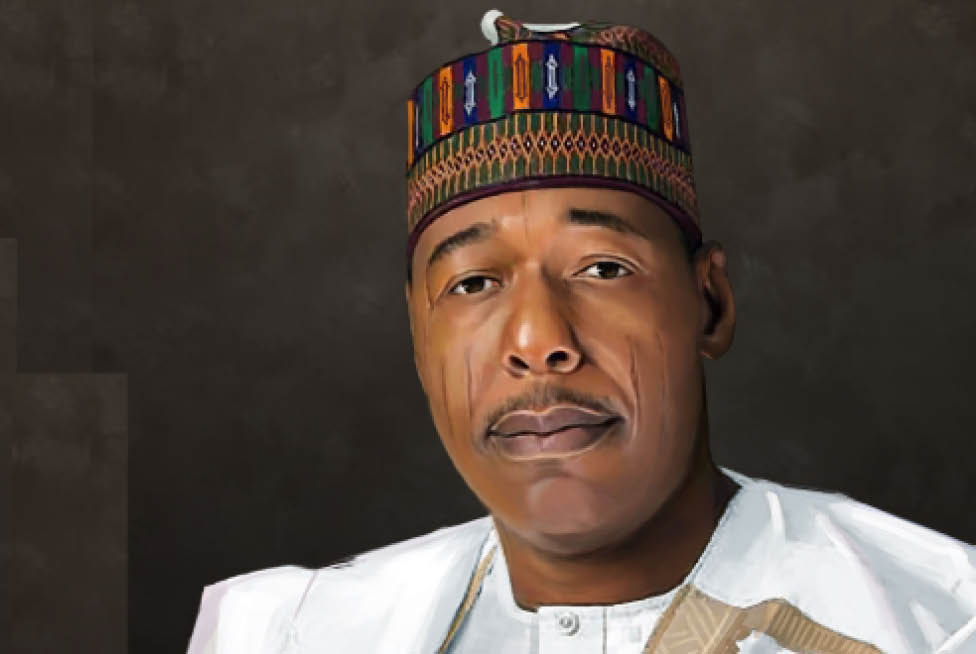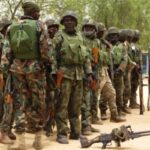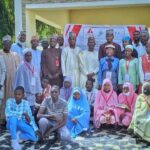There has been a glimmer of hope from Borno in the last few days, hopefully heralding a cessation of the Boko Haram insurgency. The reports that Boko Haram elements are coming out from the bush and surrendering in droves seem to indicate that the terrorists are in the final throes of capitulation. The reports emerged surreptitiously in May making rounds of rumours that many Boko Haram terrorists’ commanders were willing to come out of hiding and surrender. Their action was explained away as an aftermath of the shock of the death of their dreaded leader, Abubakar Shekau. They were battle-weary and now leaderless. Nevertheless, many of us digested that story with the usual pinch of salt, until a few months later it happened.
In Gwoza and Bama, areas hard hit by the terrorists in the last many years of this war of attrition, hundreds of them came out to be received by our soldiers. The surrender included a feared commander, Musa Adamu aka Mala Musa Abuja and his deputy Amir Abu Darda both well known to the military as experts in the fabrication of Explosive Devices (IEDs). They also came out along with other 20 or so IED fabricating collaborators. To add colour to the surrender events, a few Chibok girls in tow with their children and purported husbands were listed among the returnees. When many others surrendered particularly around the Lake Chad region, it dawned on even the most sceptical that something positive is really afoot.
- Edo receives 76,712 doses of COVID-19 vaccine
- PODCAST: Can Boko Haram take over Nigeria like Taliban did in Afghanistan?
Knowing the area very well, particularly the northern Borno parts, I would imagine that the rainy season would always be a period of diminished activity in the engagement with the terrorists due to the terrain of the land. Most of the land is covered with the firgi soil, which gets cloggy after rains, and would not be convenient for deft vehicular movements. In any case, in the past many years, there had always been a lull in the fighting during the rainy seasons. But the military insisted that this is not the case this time. The surrenders were too large and could only be explained by the coordinated bombardments aimed at the strongholds of the terrorists in their Sambisa hideouts and at the island’s bases dotted on the Lake Chad. The National Security Adviser, Major General Babagana Monguno gave a nod to this narrative when, after the National Security meeting last week, he announced that: “Large numbers of people are surrendering in the North East as a consequence of the relentless efforts of the armed forces, intelligence and security agencies. We have never had such numbers of people defecting from the other side, back to the Nigerian side, mainly as a result of many issues within the theatre, especially infighting among the various factions of the terrorist groups.”
We pray it is true. It could be. This is because there has been no echo of fighting from that theatre. Of recent, we have not heard any news of attacks whether it is on hapless travellers on the way, or on towns and villages or military bases. The space is now occupied with what to do with those elements that are surrendering. I guess the military must have had ample time to prepare for this eventuality, which is now emerging. I doubt it if they would be caught napping. Even now their mixed techniques of humane handling of surrendered members of the insurgents is probably one of the reasons encouraging the terrorists holed up to come out.
Of course, the military should be wary of a hurried integration of the surrendered terrorists with their communities who endured their cruelties over the years. There is still too much anger against them and any enforced integration would only be counter-productive and might even lead to a breakdown of law and order. From my perspective, the military should for the moment, keep these terrorists in their camps for some form of rehabilitation, reorientation and de-radicalisation as the case may be. In this respect, all eyes will be on the Borno State Government to crank up its plans for these surrendered militants and their cohorts that would be eventually handed over to them.
The state and local governments should be looking ahead now as they would soon have a large number in their hands. And when you add that to the number of IDPs that have been languishing for years in Maiduguri and other host communities then you would understand the enormity of the exercise. Nevertheless, the Borno State Governor, Babagana Zulum has been up and doing taking IDPs back to their communities. Early this month, he was in Baga to resettle over 500 families. But resettling militants would be a harder nut to crack. He will need all the help he can get from the federal authorities and the international communities.
The success of resettling militants and integrating them within the community in Borno would be watched with keen interest, as the same scenario had unfolded in the North West and it would eventually require the same treatment.

 Join Daily Trust WhatsApp Community For Quick Access To News and Happenings Around You.
Join Daily Trust WhatsApp Community For Quick Access To News and Happenings Around You.

